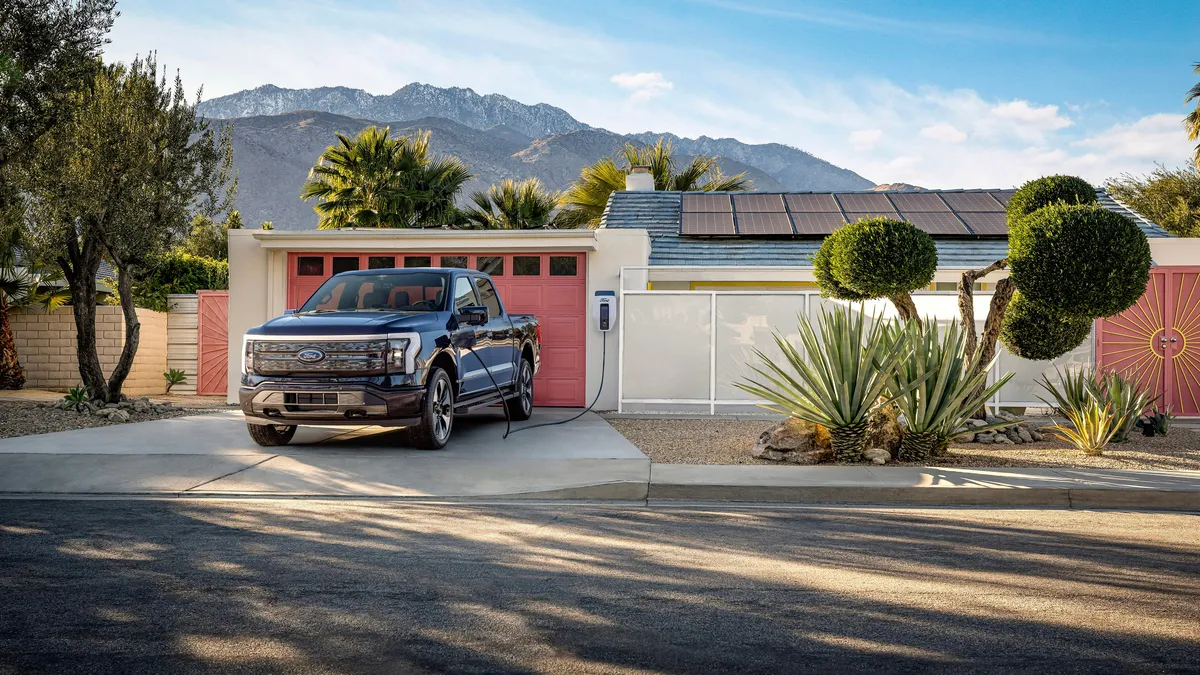Ford Motor Co. and Texas-based electricity company TXU Energy are joining forces to offset at-home charging costs for electric Ford SUV and truck owners, according to an Aug. 12 press release.
As part of the TXU Free EV Miles program, eligible Ford owners will receive a 100% credit on their electric bill for energy used to charge their EVs between the hours of 7 p.m. and 1 p.m. the following day, which could cover the entire cost of all at-home charging, the release said. According to the Department of Energy, the vast majority of EV charging — as much as 90% — occurs overnight at home.
“Encouraging our electric vehicle customers to charge at off-peak hours through programs like Free EV Miles helps to save them money while supporting a more sustainable, resilient electrical grid,” said Bill Crider, senior director of global charging and energy services at Ford, in the release.
The money-saving program could attract more car buyers to EVs, as many have said cost is a barrier to adoption.
The agreement between the automaker and the utility also looks to help with Texas’s strained electrical grid by incentivizing EV customers to curb the demand for charging during peak times.
“This partnership with Ford fits squarely into TXU Energy’s broader strategy of educating customers on the benefits of owning an EV, removing barriers to making the switch, and increasing grid resiliency,” TXU Energy’s VP of Energy transition Solutions Sam Sen said in the release.
Ford has launched other programs to support grid sustainability, such as a 2023 partnership with Duke Energy in North Carolina.
Additionally, Ford’s F-150 Lightning pickup truck has bidirectional charging capability, meaning it can power a home’s electricity during a power outage or even send energy back to the grid, creating a virtual power plant. A recent Ford partnership with California utility Pacific Gas and Electric piloted a program to test the benefits of bidirectional charging.
While the Free EV Miles release did not mention bidirectional charging, many Ford EV owners in Texas are already familiar with it — it’s how they powered their homes during the blackouts caused by Hurricane Beryl in July, according to a post on X by Ford CEO Jim Farley.















